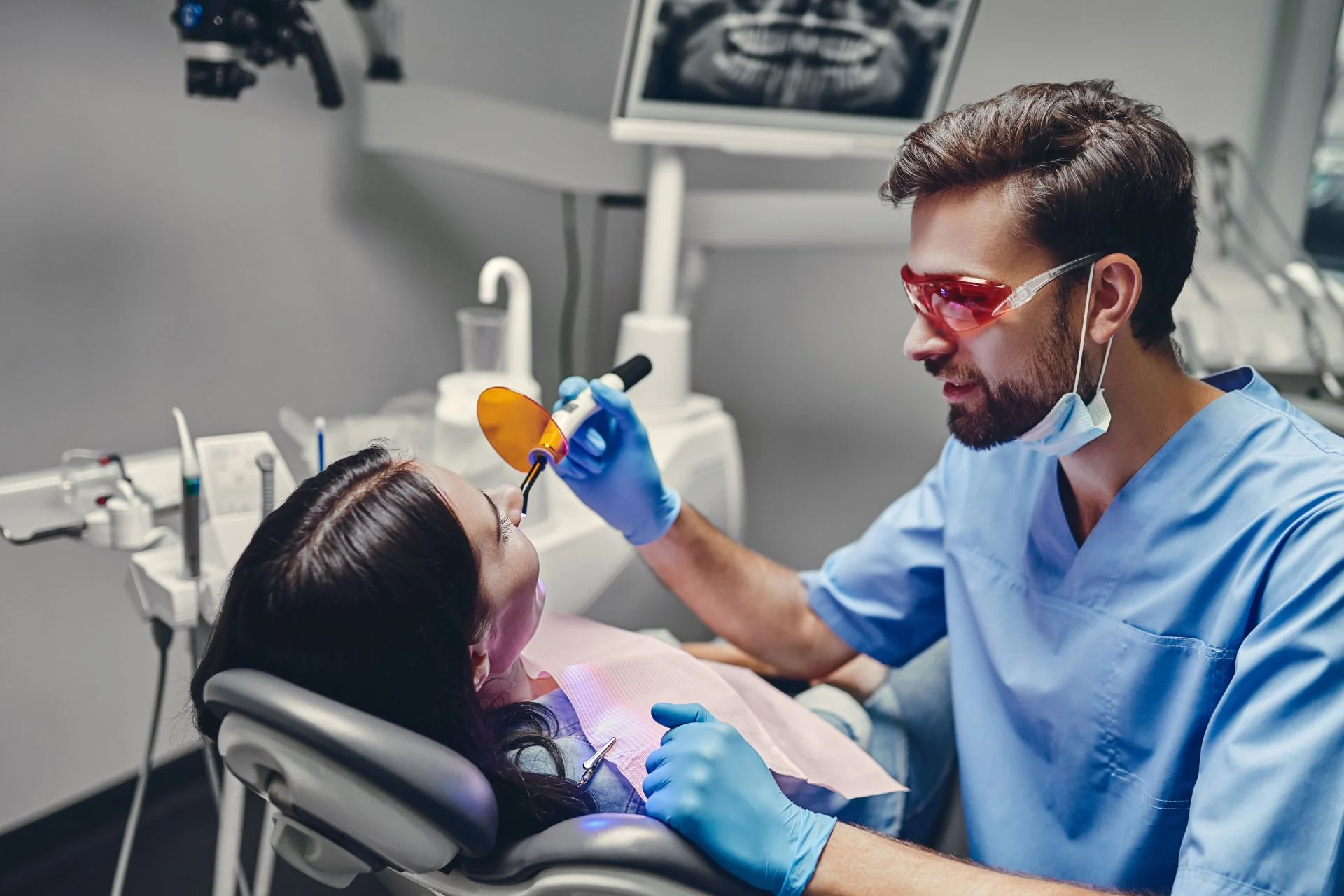Preventive Dental Care
Preventive Dentistry
Preventive dental care is important throughout your life, no matter your age. By practicing good oral hygiene at home and scheduling regular checkups with your dentist, you can help keep your smile bright and healthy for many years to come.
Here are 7 simple ways that you can prevent the build-up of plaque and cavities:
- Brush your teeth at least twice a day with a soft-bristled toothbrush. Use fluoride toothpaste to remove food particles and plaque from the tooth surfaces. Also, be sure to brush the top surface of your tongue; this will remove any extra plaque causing food particles, and help keep your breath fresh!
- Clean between your teeth by flossing at least once a day. You can also use a mouthwash to help kill bacteria and freshen your breath. Decay-causing bacteria can linger between teeth where toothbrush bristles can’t reach. Floss and mouthwash will help remove plaque and food particles from between the teeth and under the gum line.
- Eat a balanced diet, and try to avoid extra-sugary treats. Nutritious foods such as raw vegetables, plain yogurt, cheese or fruit can help keep your smile healthy.
- Remember to schedule regular checkups with your dentist every six months for professional teeth cleaning.
- Ask your dentist about dental sealants, a protective plastic coating that can be applied to the chewing surfaces of the back teeth where decay often starts.
- If you play sports, be sure to ask your dentist about special mouthguards designed to protect your smile.
- If you grind or clench your teeth, a night guard may be recommended by your dentist
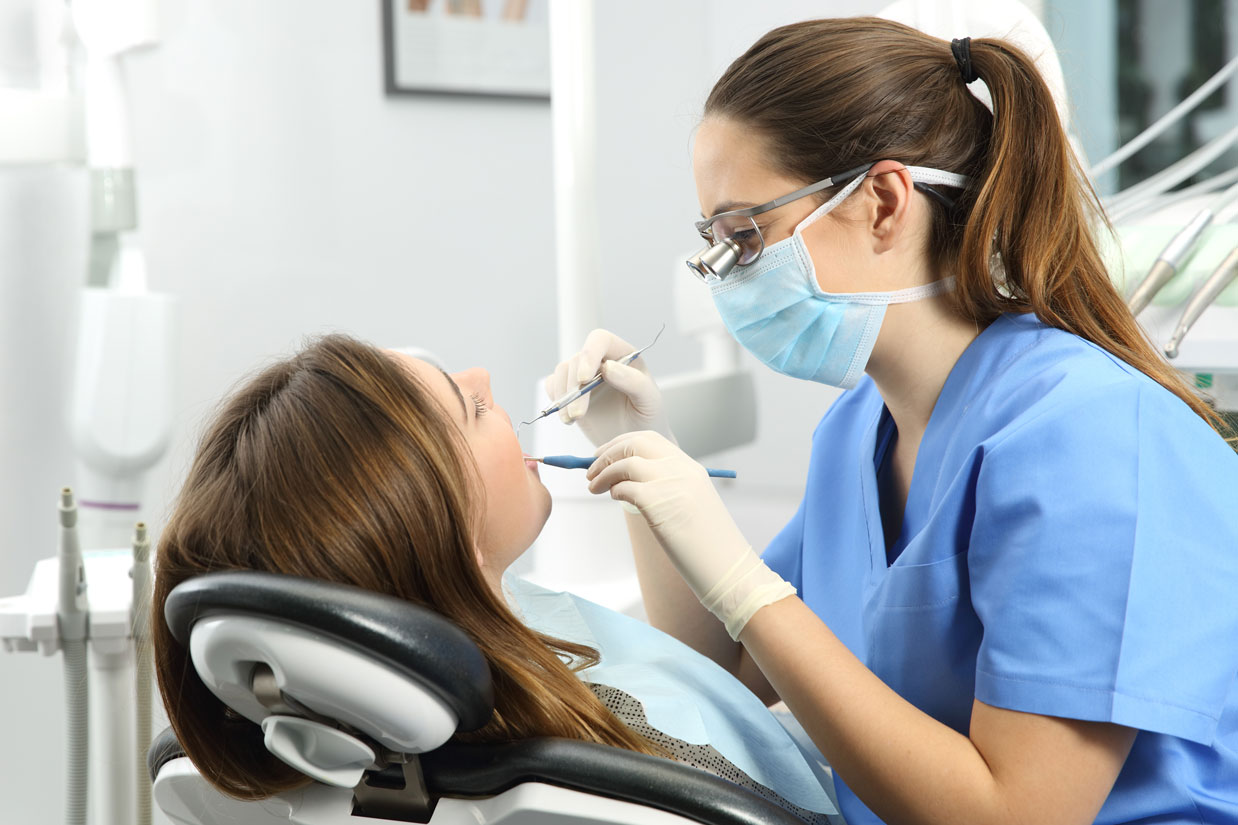
Who Benefits from preventative dentistry?
Everyone benefits from preventive dentistry. Children, in particular, benefit because it allows their newly developing adult teeth to come in strong and healthy. Dental sealants and topical fluoride treatments help prevent decay in your children’s teeth. If you’re an aging adult, you can benefit from preventive dentistry because it helps you to keep your real teeth.
If it’s been six months since your last dental checkup,
then it’s time to contact our practice and schedule your next appointment!
Cleanings
Practicing good oral hygiene means maintaining your smile by visiting the dentist regularly and taking care of your teeth and gums between checkups. Our practice wants to make sure that you get the most out of your office visits, and that your teeth stay healthy for life!
We’ll work with you to provide complete dental care and show you how to maintain your smile at home with the right dental products for you and your family.
Dental Cleanings and Regular Checkups
Regular dental checkups are an important part of maintaining your oral health. During your regular checkup, your hygienist will:
- Check for any problems that you may not see or feel
- Look for cavities or any other signs of tooth decay
- Inspect your teeth and gums for gingivitis and signs of periodontal disease
- Provide thorough teeth cleaning, rinse, and polish
Visiting the dentist every six months gives you the chance to talk with your doctor and receive answers for any questions you may have about your oral health. Checkups are also a great way for you to find out about new treatments that may benefit your smile.
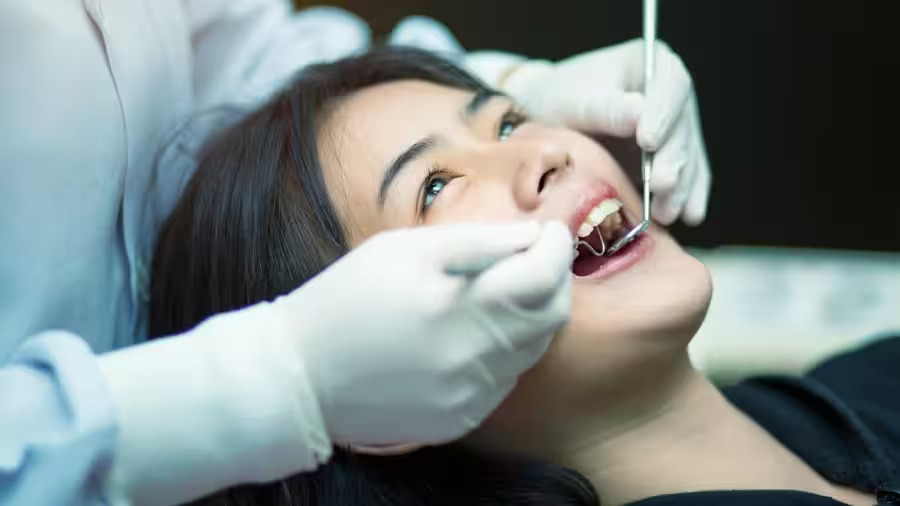
Choosing the Right Toothpaste and Toothbrush
From toothpaste and mouthwash to toothbrushes and dental floss, it’s important to choose the right products for your smile. Keep in mind that when you’re looking for a new toothpaste or toothbrush be sure to choose one that has been approved by the American Dental Association (ADA). Your dentist can also help by recommending certain dental products for use at home.
Learn More
Did you know that at birth, people already have 20 primary (baby) teeth that begin erupting after six months and that by age 21 there are no more primary teeth, and all 32 permanent teeth have erupted?
Getting to know your teeth can be fun and educational!
Gum Disease
Gum disease is also known as periodontal disease and is an infection of the gums surrounding your teeth. Gum disease is one of the top reasons for tooth loss in adults, and because it is virtually pain-free, many patients do not know they have the disease. During each regular checkup, your dentist will check for signs of periodontal disease by measuring the space between your teeth and gums.
What Causes Gum Disease?
Gum disease is caused by a buildup of plaque (a sticky form of bacteria that forms on the teeth). If the plaque is not removed (by flossing, brushing, and regular dental checkups), it will continue to build up and create toxins that can damage the gums. Periodontal disease forms just below the gum line and creates small pockets that separate the gums from the teeth. Periodontal disease has two stages: gingivitis and periodontitis.
- Gingivitis — This is the early stage of gum disease, when the gums become red and swollen, and bleed easily. At this stage, the disease is treatable and can usually be eliminated by daily brushing and flossing.
- Periodontitis — If left untreated, gingivitis will advance into periodontitis, and the gums and bone that support the teeth will become seriously and irreversibly damaged. Gums infected with periodontitis can cause teeth to become loose, fall out, or be removed by a dentist.
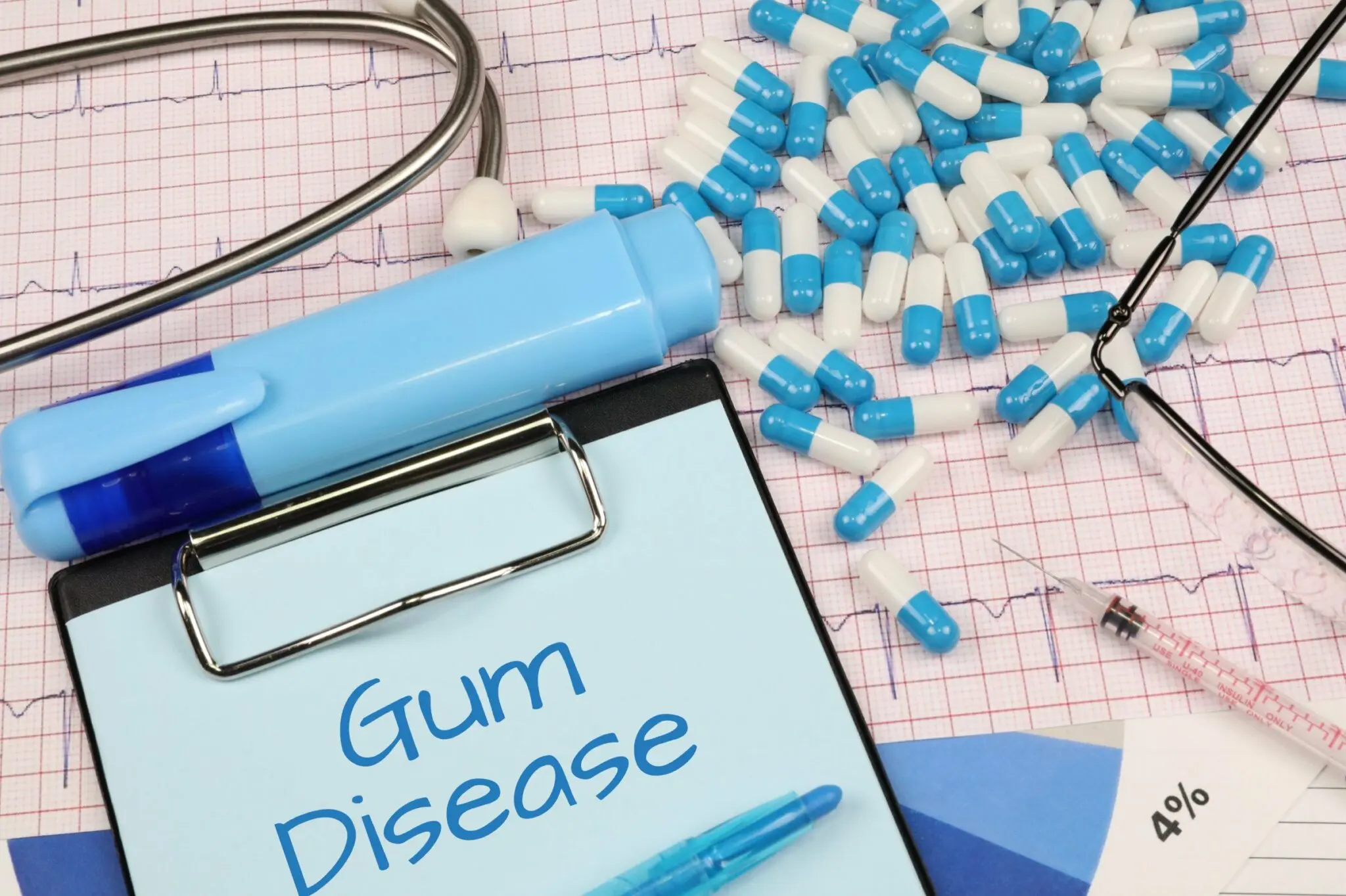
Certain Factors Can Increase A Patient’s Risk Of Developing Periodontal Disease, Including:
- Smoking or using chewing tobacco
- Diabetes
- Certain types of medication such as steroids, anti-epilepsy drugs, cancer therapy drugs, calcium channel blockers, and oral contraceptives
- Bridges that no longer fit properly
- Crooked teeth
- Old fillings
- Pregnancy
While It Is Possible To Have Periodontal Disease And Not Know It, Some Symptoms Can Include:
- Gums that bleed easily
- Red, swollen, tender gums
- Gums that have pulled away from the teeth
- Persistent bad breath or bad taste
- Pus between your teeth and gums
- Permanent teeth that are loose or separating
- Any change in the way your teeth fit together when you bite
- Any change in the fit of partial dentures
Treating Gum Disease
Treatments for gum disease can vary depending on the severity of each individual case. Typical treatments include:
- Non-surgical treatments such as at-home periodontal trays, and scaling and root planning (deep cleaning)
- Periodontal surgery and laser gum surgery
- Dental implants
Preventing Gum Disease
Regular dental checkups and periodontal examinations are important for maintaining your health and the health of your smile. You don’t have to lose teeth to periodontal disease, and by practicing good oral hygiene at home, you can significantly reduce your chances of ever getting gum disease. Remember to brush regularly, clean between your teeth, eat a balanced diet, and schedule regular dental visits to help keep your smile healthy.
Fluoride
You brush your teeth twice a day, floss regularly and visit the dentist every six months, but did you know that rinsing with fluoride — a mineral that helps prevent cavities and tooth decay — also helps keep your teeth healthy and strong?
Fluoride is effective in preventing cavities and tooth decay by coating your teeth and preventing plaque from building up and hardening on the tooth’s surface.
Fluoride Comes In Two Varieties, Topical And Systemic:
- Topical fluoride is applied directly to the tooth and includes toothpaste and mouth rinses.
- Systemic fluorides are generally only used by your dentist and are not often available for at-home use. Systemic fluoride treatments are generally designed to help protect the oral health of children undergoing dental procedures. Fluoride used in the dentist/orthodontists office is often a much stronger concentration than in toothpaste or mouthwash but is available at some drug stores or a pharmacy (ask your dentist before purchasing professional strength fluoride).
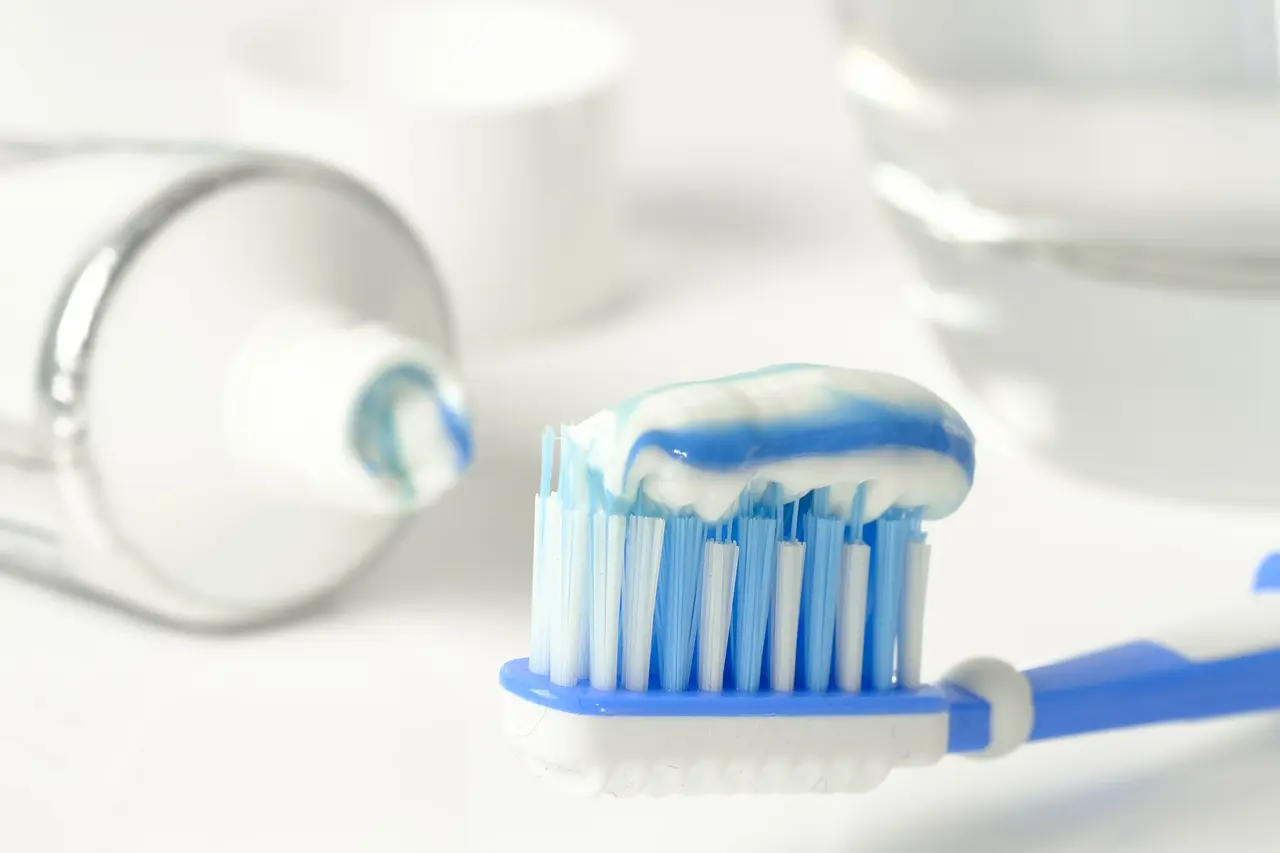
Receiving A Fluoride Treatment From Your Dentist
A fluoride treatment in your dentist’s office takes just a few minutes. After the treatment, patients may be asked not to rinse, eat, or drink for at least 30 minutes in order to allow the teeth to absorb the fluoride. Depending on your oral health or your doctor’s recommendation, you may be required to have a fluoride treatment every three, six, or 12 months. Your doctor may also prescribe an at-home fluoride product such as a mouthwash, gel, or antibacterial rinse.
How To Choose The Right Fluoride Treatment
When choosing your own at-home fluoride product (such as toothpaste or mouthwash), always check for the American Dental Association’s (ADA) seal of acceptance. Products marked with the ADA seal of approval have been carefully examined by the ADA and approved based on safety and effectiveness. Take care of your teeth and smile bright with dental fluoride treatments!
Are You Considering Preventive Dentistry?

Why Choose Simply Smiles Miami
Receiving dental implants can significantly enhance both your daily life and overall health. However, it’s essential to choose an implant dentist you can trust before committing to treatment. While some general dentists may have experience with implant placement, they may lack the specialized training that Dr. Trujillo and his team possess for handling complex cases with expertise and efficiency. Our team warmly welcomes patients seeking first or second opinions on dental implants, including those with severe dental anxiety or multiple missing teeth. Explore our location to discover how our implant dentists’ specialized care can positively transform your oral health, overall well-being, and quality of life.
What Our Patients Say:
Don’t take our word for it, take theirs!
REQUEST A CONSULTATION
Make An Appointment
